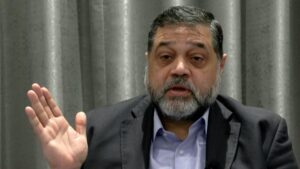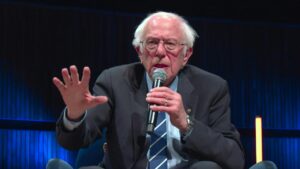Pentagon chief visits Iraq nearly 20 years after US-led invasion
Baghdad, Iraq (AFP):
US Defense Secretary Lloyd Austin has arrived in Iraq on an unannounced visit barely two weeks before the 20th anniversary of the US-led invasion that toppled Saddam Hussein.
“I’m here to reaffirm the US-Iraq strategic partnership as we move toward a more secure, stable and sovereign Iraq,” Austin tweeted as he landed in Baghdad.
His visit comes ahead of the March 20 anniversary of the ground invasion which ushered in two decades of bloodshed that Iraq is only now beginning to exit.
In the run-up, Iraq has hosted a raft of foreign officials, including UN chief Antonio Guterres and the Iranian, Russian and Saudi foreign ministers.
Since US-led coalition troops ousted Saddam’s Sunni Arab-dominated regime, Iraq’s Shiite majority has led Iraq under a power-sharing system.
Successive governments have forged close ties with Iraq’s Shiite-led neighbour Iran, while Iraq also maintains relations with the United States, Iran’s arch foe, in a delicate balancing act.
Both Washington and Tehran provided extensive support during Iraq’s fightback against the Sunni extremists of the Islamic State group, who overran swathes of northern and western Iraq in 2014.
Religious militant groups were ousted from Iraqi territory in 2017 but retain sleeper cells in desert and mountain hideouts in both Iraq and neighbouring Syria.
Iraq announced the end of combat operations by US-led coalition troops at the end of 2021 but some units remain deployed to provide advice and training.
Austin’s visit comes after he held talks in neighbouring Jordan with King Abdullah II, a staunch US ally in the region.
“Secretary Austin shared his concerns on a range of shared challenges, including… maintaining focus on security and stability in Iraq, and countering other destabilising activities in the region,” a Pentagon statement said.
Despite its vast oil and gas reserves, Iraq suffers from decades of underinvestment in its infrastructure and public services that have sparked repeated waves of protests.











